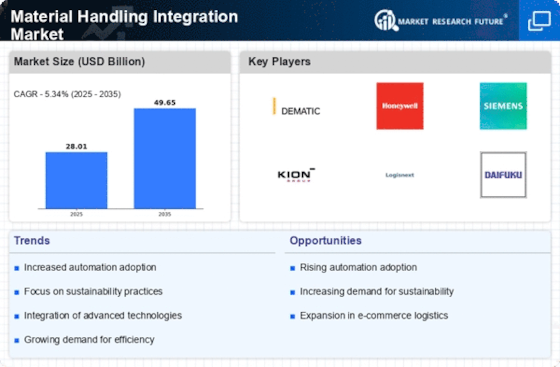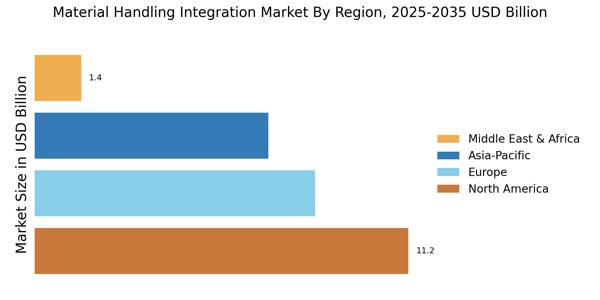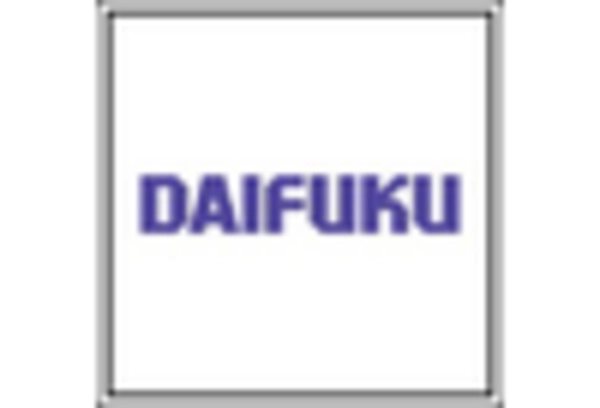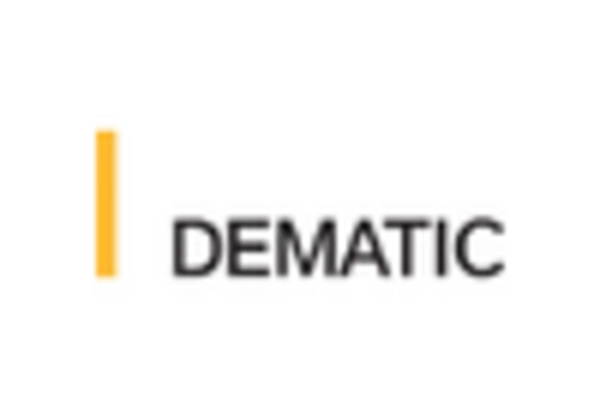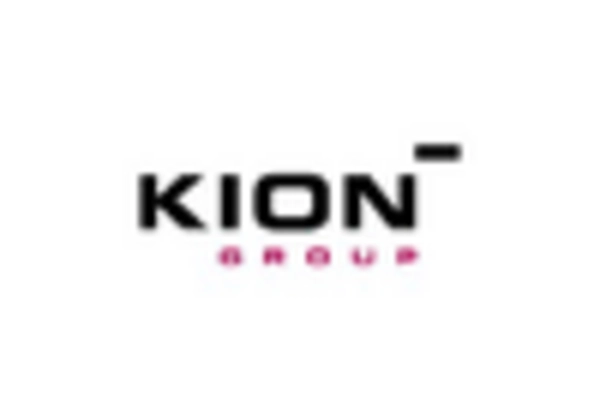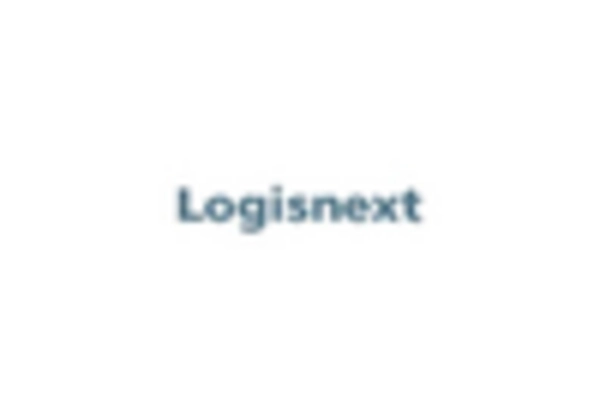Growth of E-commerce
The rapid expansion of e-commerce significantly impacts the Material Handling Integration Market. As online shopping continues to gain traction, logistics and warehousing operations must adapt to handle increased order volumes and customer expectations for fast delivery. The material handling sector is witnessing a shift towards automated solutions that can efficiently manage inventory and fulfill orders. Data indicates that e-commerce sales have seen a consistent annual growth rate of over 15%, necessitating advanced material handling systems to support this growth. Consequently, the integration of sophisticated technologies in the Material Handling Integration Market is becoming increasingly vital to meet the demands of this evolving landscape.
Sustainability Initiatives
Sustainability initiatives are increasingly influencing the Material Handling Integration Market. Companies are recognizing the importance of adopting environmentally friendly practices and reducing their carbon footprint. This shift is prompting organizations to invest in integrated material handling solutions that promote energy efficiency and waste reduction. For instance, the use of electric-powered equipment and automated systems can lead to significant reductions in energy consumption. Data suggests that businesses implementing sustainable practices can achieve cost savings of up to 20% in operational expenses. As sustainability becomes a core component of corporate strategy, the Material Handling Integration Market is likely to see a rise in demand for solutions that align with these initiatives.
Technological Advancements
Technological advancements play a crucial role in shaping the Material Handling Integration Market. Innovations such as artificial intelligence, machine learning, and the Internet of Things are revolutionizing how materials are handled and integrated within supply chains. These technologies enable real-time data analysis, predictive maintenance, and enhanced decision-making capabilities. As a result, companies are more inclined to invest in integrated material handling solutions that leverage these advancements. The market is projected to grow at a compound annual growth rate of approximately 10% over the next five years, driven by the increasing adoption of these technologies. This trend underscores the importance of staying abreast of technological developments within the Material Handling Integration Market.
Focus on Safety and Compliance
Safety and compliance remain paramount concerns within the Material Handling Integration Market. As regulations surrounding workplace safety become more stringent, companies are compelled to adopt integrated solutions that enhance safety protocols and ensure compliance with industry standards. The integration of automated systems can significantly reduce the risk of accidents and injuries, thereby fostering a safer working environment. Furthermore, organizations that prioritize safety are likely to experience lower insurance costs and improved employee morale. The emphasis on safety and compliance is expected to drive investments in material handling integration solutions, as businesses seek to mitigate risks and enhance operational reliability within the Material Handling Integration Market.
Increased Demand for Efficiency
The Material Handling Integration Market experiences a notable surge in demand for efficiency across various sectors. Companies are increasingly seeking solutions that streamline operations, reduce labor costs, and enhance productivity. This trend is driven by the need to optimize supply chains and improve inventory management. According to recent data, organizations that implement integrated material handling systems can achieve up to a 30% increase in operational efficiency. As businesses strive to remain competitive, the integration of advanced material handling solutions becomes essential. This demand for efficiency not only influences purchasing decisions but also shapes the development of innovative technologies within the Material Handling Integration Market.


